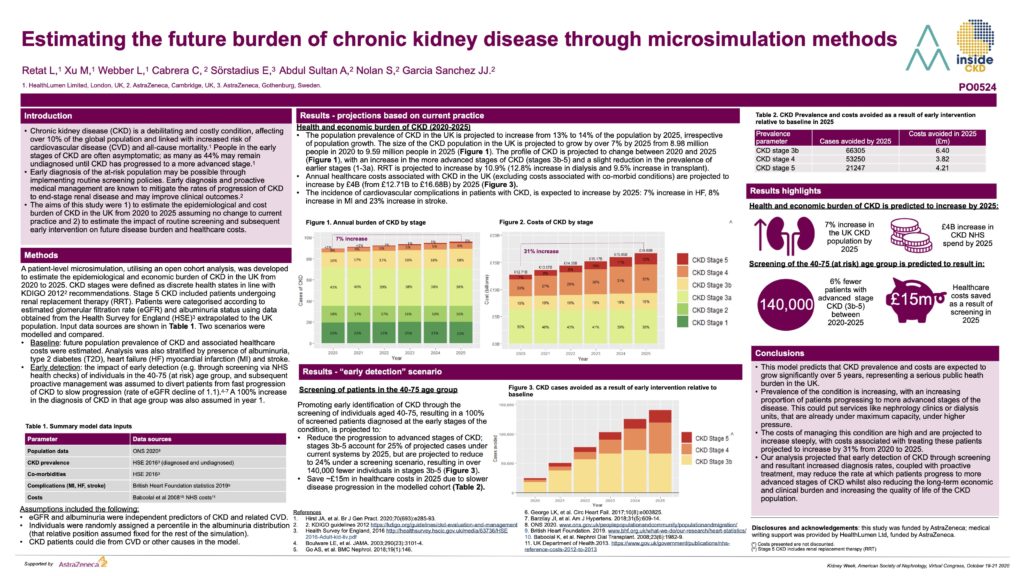
Estimating the future burden of chronic kidney disease through microsimulation methods
Chronic kidney disease (CKD) is a debilitating and costly condition, affecting over 10% of the global population and linked with increased risk of cardiovascular disease (CVD) and all-cause mortality. People in the early stages of CKD are often asymptomatic; as many as 44% may remain undiagnosed until CKD has progressed to a more advanced stage. Early diagnosis of the at-risk population may be possible through implementing routine screening policies. Early diagnosis and proactive medical management are known to mitigate the rates of progression of CKD to end-stage renal disease and may improve clinical outcomes. The aims of this study were 1) to estimate the epidemiological and cost burden of CKD in the UK from 2020 to 2025 assuming no change to current practice and 2) to estimate the impact of routine screening and subsequent early intervention on future disease burden and healthcare costs. Undertaken in partnership with AstraZeneca, this study is now being rolled out to over 20 countries.
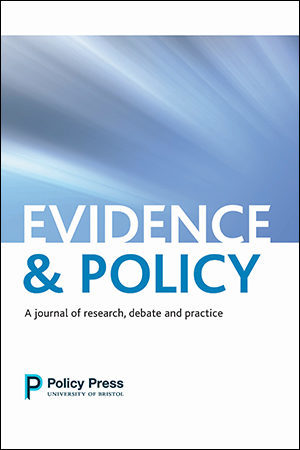
Why we must work toward a recognised international standard in evaluation of upstream interventions
The COVID-19 pandemic has increased interest in Universal Basic Income (UBI) as a means of addressing a range of socio-economic insecurities. While previous trials of cash transfer schemes have often focused on low-level transfers inadequate to satisfy the needs for which the policy was originally developed, emerging pilots are moving toward a position of increasing generosity. Our multidisciplinary project, Examining the Health Case for UBI, has brought together colleagues in behavioural science, public health, epidemiology and economics to establish pathways to health impact.
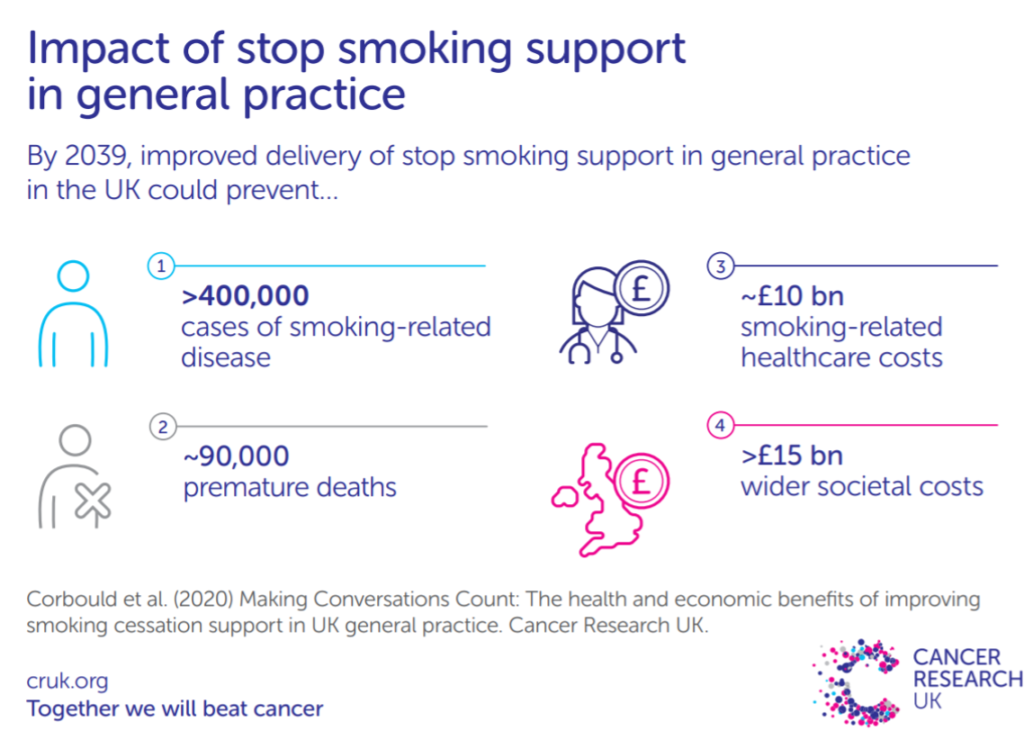
Making Conversations Count: The health and economic benefits of improving smoking cessation support
This study conducted with Cancer Research UK aimed to quantify the health and economic benefits of GPs routinely delivering stop smoking support to patients during consultations in the UK. Using a microsimulation model over the period 2019 to 2039, a current practice 'baseline' scenario was compared to three opt-out smoking cessation intervention scenarios.
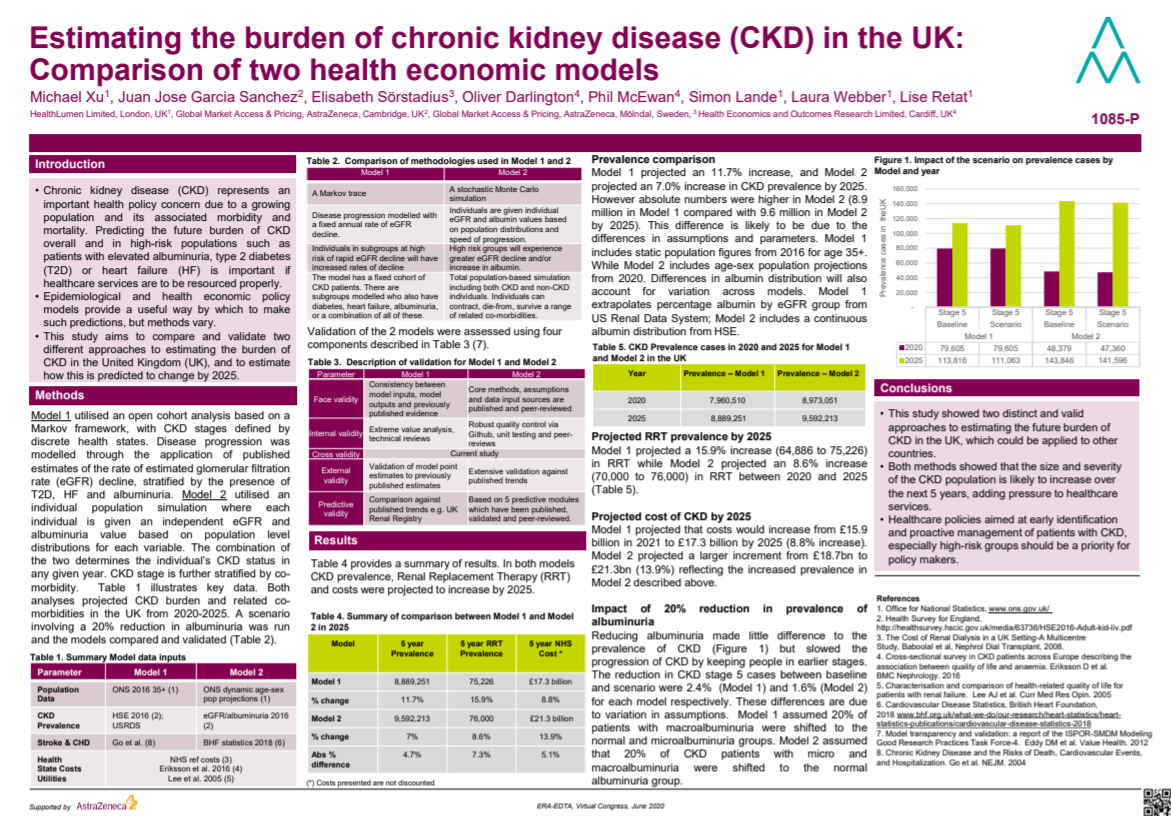
Estimating the burden of CKD
Chronic kidney disease (CKD) represents an important health policy concern due to a growing population and its associated morbidity and mortality. Predicting the future burden of CKD overall and in high-risk populations such as patients with elevated albuminuria, type 2 diabetes (T2D) or heart failure is important if healthcare services are to be resourced properly. Epidemiological and health economic policy models provide a useful way by which to make such predictions, but methods vary. This study aims to compare and validate two different approaches to estimating the burden of CKD in the United Kingdom (UK), and to estimate how this is predicted to change by 2025. Undertaken in partnership with AstraZeneca, this study is now being rolled out to over 20 countries.

Universal Basic Income During the Coronavirus Pandemic
The COVID-19 Pandemic is projected to cause an economic shock larger than the Global Financial Crisis of 2007/2008 and a recession as great as anything seen since the Great Depression in 1930s. The social and economic consequences of lockdowns and social distancing measures, such as unemployment, broken relationships and homelessness create potential for inter-generational trauma extending decades into the future. In the absence of a vaccine, governments need to introduce Universal Basic Income (UBI) as a means of mitigating this trauma.

Measuring the health impact of Universal Basic Income
In 2019, we reviewed Universal Basic Income (UBI) trial design and findings in comparison with the social gradient in health literature and biopsychosocial theory to identify knowledge gaps. The findings highlight a need to refocus UBI trials on improved health, including via reduced stress, to provide policy makers the means of producing accurate cost-benefit analysis. Previous trials have either not reflected likely UBI policy or failed to measure impacts that enable accurate analysis.
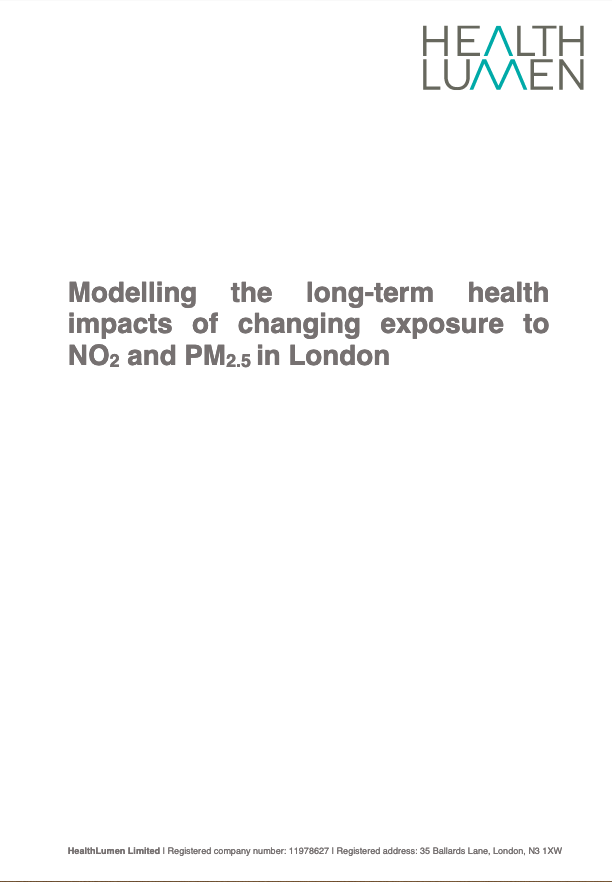
The long-term health impacts of changing exposure to air pollutants in London
Transport for London (TfL) and the Greater London Authority (GLA) commissioned HealthLumen to quantify the health impacts of policies designed to reduce levels of air pollution and improve long-term health. This 2020 study estimates the number of new cases of disease and the resulting costs to the NHS and social care system under three scenarios from 2016 to 2050. The results from this study show that the ULEZ policies and broader, more all-encompassing LES policies have important impacts on the health of Londoners.
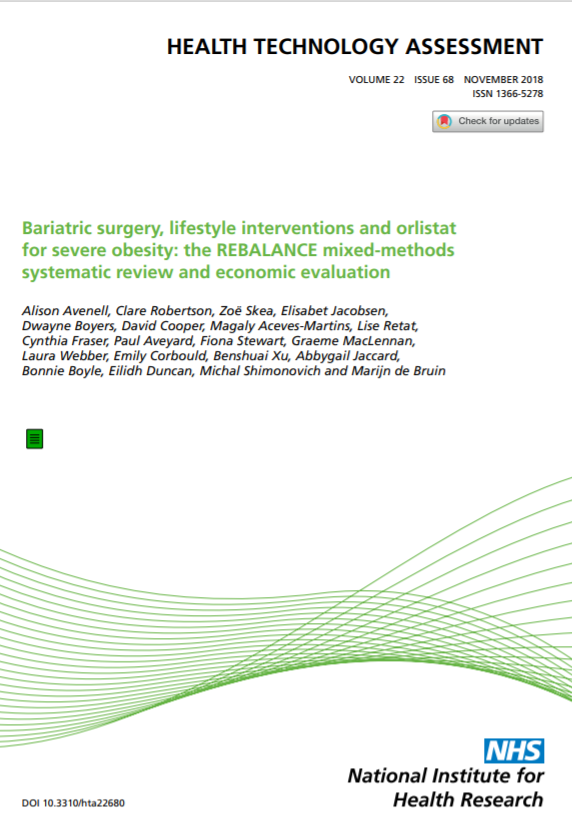
REBALANCE: Mixed-methods systematic review and economic evaluation for severe obesity
A study to systematically review bariatric surgery, weight-management programmes (WMPs) and orlistat pharmacotherapy for adults with severe obesity, and evaluate the feasibility, acceptability, clinical effectiveness and cost-effectiveness of treatment.
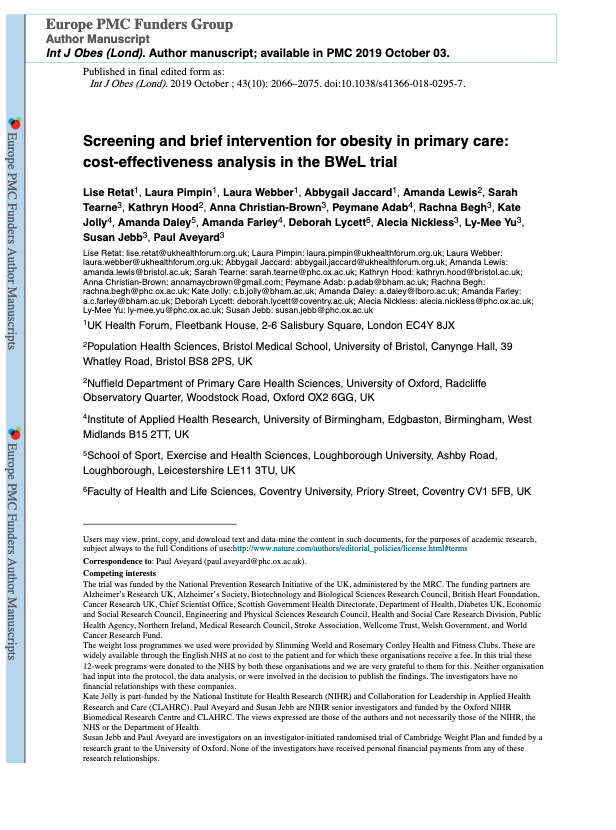
Obesity in primary care: Screening and brief intervention
The Brief Intervention for Weight Loss Trial enrolled consecutively attending primary care patients who were obese and participants were randomised to physicians opportunistically endorsing, offering, and facilitating a referral to a weight loss programme (support) or recommending weight loss (advice). We use a cohort simulation to predict effects on disease incidence, quality of life, and healthcare costs over 20 years.
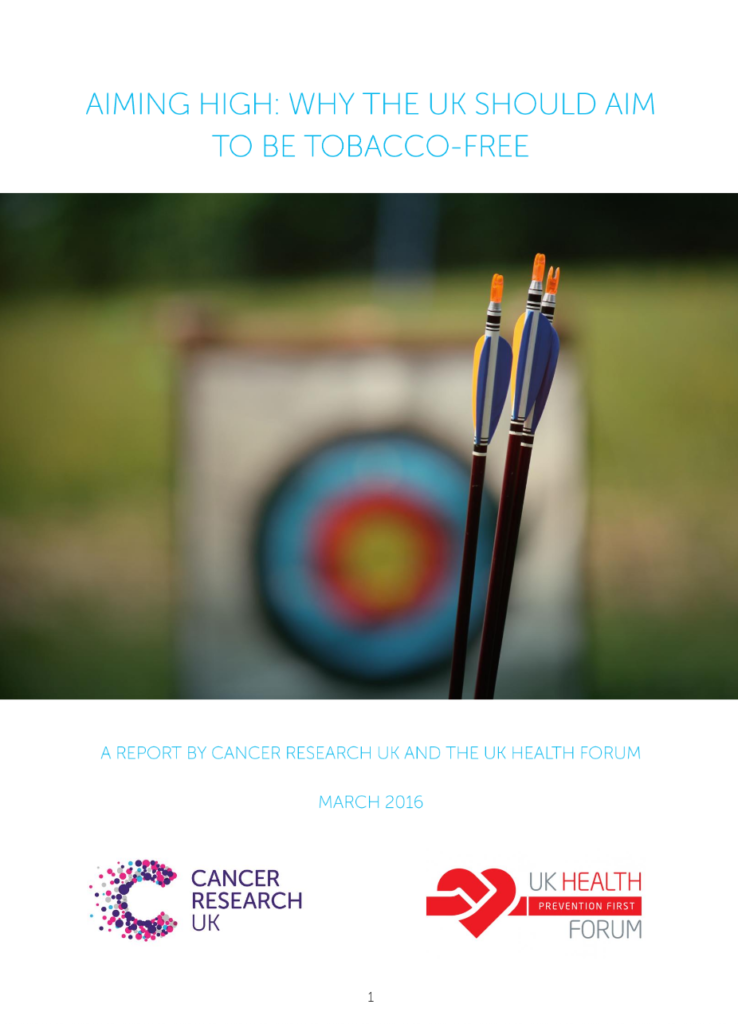
Aiming High: Why the UK should aim to be tobacco-free
Smoking is still the biggest preventable cause of cancer in the UK, and the biggest cause of premature mortality and health inequalities. This study used a state of the art simulation model to measure dynamic changes in smoking prevalence in the UK over time by age, gender, sex and socio-economic status.